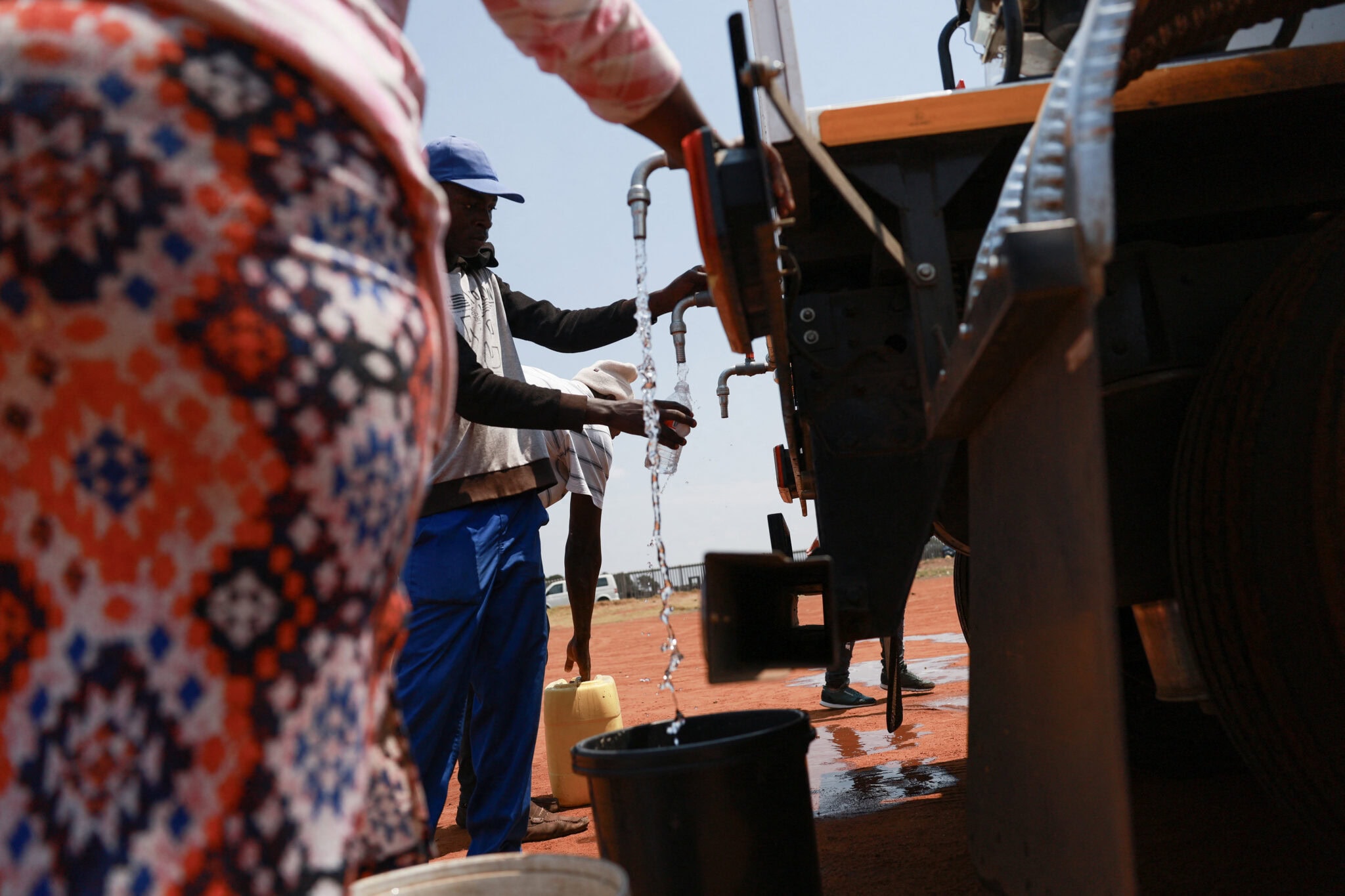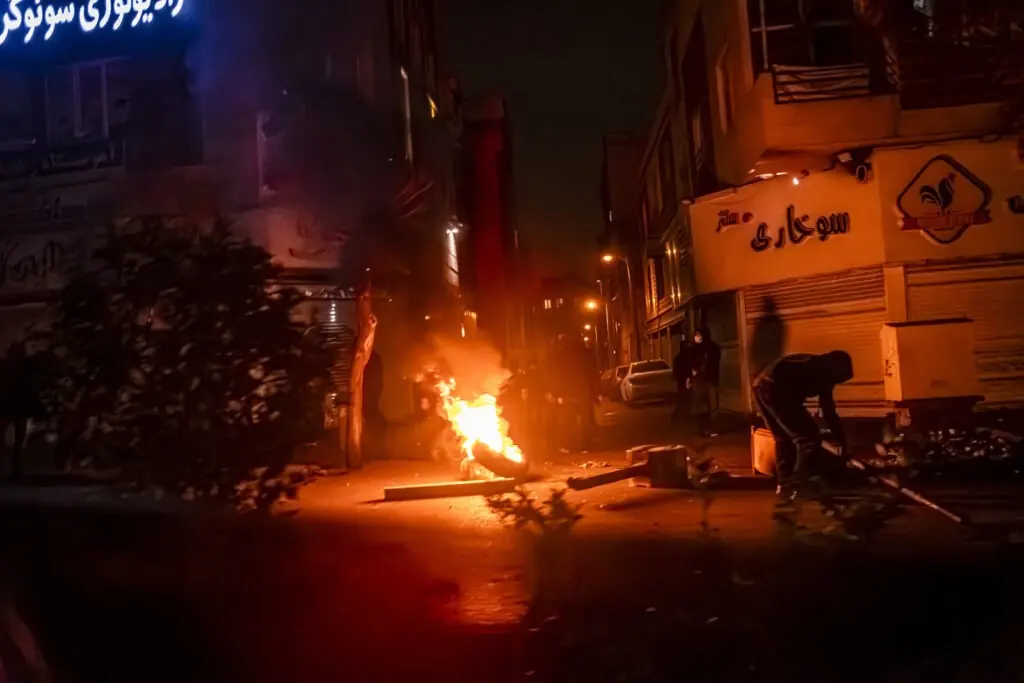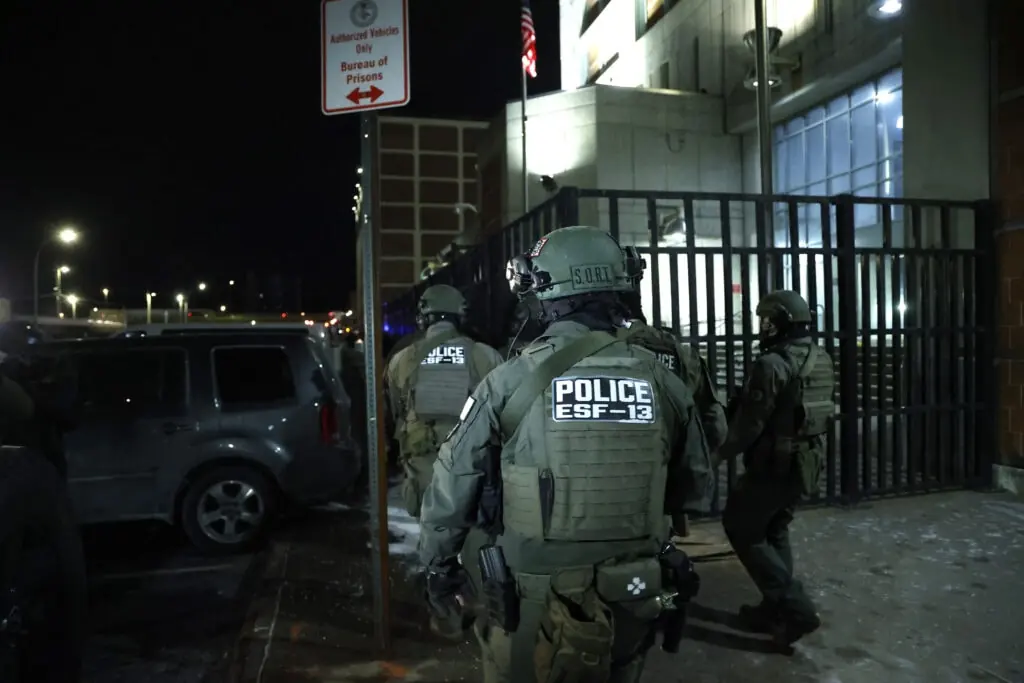
Weaponizing Water: Mafias in South Africa
Water security is and will continue to be one of the biggest risks to South Africa’s political and economic future. A lack of regular access to clean drinking water impacts not only the country’s residents but also its businesses by reducing its attractiveness to international investors. South Africa’s water crisis is not one of shortages but rather provisions: Failing infrastructure prevents water from being delivered to consumers, with criminal groups known as “water tanker mafias” exploiting and contributing to water-delivery issues. Government initiatives to improve water infrastructure will fail if little is done to crack down on water tanker mafias, which will continue to sabotage new projects.
While the end of load-shedding – scheduled blackouts necessitated by mismanagement of the electricity sector – has bolstered the country’s international reputation, unresolved water issues, particularly in the economic hub of Gauteng, threaten economic growth, investor confidence, and political stability under the Government of National Unity (GNU). The U.S. has substantial economic and security interests in Africa, including significant investment opportunities from predicted population growth and access to critical minerals essential for U.S. security. As the largest industrialized African economy, regional security anchor, and source of key metals and minerals, South Africa is of particular strategic value to the United States. A declining economic performance due to water challenges leaves South Africa more reliant on Chinese investments, and therefore more vulnerable to Chinese demands that might threaten U.S. interests in South Africa and the continent.
Water Tanker Mafias
South Africa’s water infrastructure is at a tipping point. Over half of the water provided by bulk suppliers such as Rand Water, the country’s largest provider, is lost to leaks, theft, and mismanagement and therefore does not reach consumers. Droughts made more severe by climate change, paired with a growing demand for water driven by urbanization and population growth, puts further strain on already insufficient water infrastructure. By 2030, water demand is expected to surpass available supply by 17%. Senzo Mchuni, the country’s former water and sanitation minister, estimates it will cost South Africa nearly 90 billion rand ($4 billion) per year over the next 10 years to build infrastructure that can reliably deliver water to all South Africans. To ensure an investment of this scale is successful, new infrastructure projects must be protected from deliberate disruptions.
Private water tankers are intended to be a stopgap measure to address water-delivery disruptions, but organized criminal groups that exploit critical water access needs have taken over the sector. Municipalities offer temporary contracts to private suppliers to provide water when regular access has been halted until delivery can resume.
Water tanker operations emerged as a lucrative business in South Africa as it coped with severe water crises. In Limpopo province, people flocked to buy tankers during a 2015 drought. During the Cape Town water crisis, in which the city nearly exhausted its water supply, profits made from selling water from tankers soared as the city approached “Day Zero,” the day Cape Town residents’ taps would run dry, prompting online vendors to start selling water-hauler trucks. The lucrative opportunities associated with private water tankering have resulted in the emergence of organized criminal syndicates that engage in various illicit activities to maximize profits. These water tanker mafias corruptly win tender contracts, deliberately damage water infrastructure to prolong contracts, illegally charge residents for water, fill tankers from municipal supplies to sell, and sometimes contaminate supplies to win contracts.
This activity exists on all levels of the process: Large tanker businesses bribe government officials to win tenders, individual tanker owners sabotage infrastructure, and tanker drivers make illegal connections and sell water illegally. Dr. Ferrial Adam, executive manager of WaterCAN, a civil society group advocating for water equity in South Africa, said in an interview that these mafias dominate the tanker sector and can therefore dictate prices and terms for new tenders and contract renewals.
Tanker mafias rely on municipal corruption. When describing the procurement process, Adam explained that municipalities award tenders worth millions of rands to private tankers, with government officials receiving kickbacks in to renew contracts. She said contracts have been awarded to private tanker companies that lack qualifications to fulfill them, citing a December 2024 contract as an example: Two men in their mid-20s with limited experience won a tender for over $14.4 million to provide Johannesburg with water tanker services for the next three years.
Corruption in the broader South African water sector reinforces corruption in private tanker procurement. National-scale projects aimed at improving water infrastructure are vulnerable to legal misconduct, such as former President Jacob Zuma’s 2015 “War on Leaks” program, which, despite ultimately costing around $165 million, did not meaningfully reduce water losses. A probe into the program in 2020 found that around 20 percent of the total outlay was irregular, suggesting extensive corruption and mismanagement. Failed initiatives like the War on Leaks ensure a stable demand for private tankers, as infrastructure remains unreliable, prompting a demand for haulers to meet water needs. The private tanker sector therefore continue to profit from the water crisis. Tanker corruption goes beyond procurement. Municipal officials have disrupted villages’ access to free piped water in order to broker new agreements with the mafias, pocketing a portion of the tender money. Local officials have shared information on planned infrastructure repairs, enabling mafias to damage that infrastructure within a few days of repair to prolong their contracts. This further disrupts the flow of water to local residents, leaving them reliant on tankers for water again.
The mafias are especially prolific in Gauteng and KwaZulu-Natal provinces. In Gauteng, home to the economic hubs of Johannesburg and Pretoria, population growth and severe delays in construction of the Lesotho Highlands Water Project have put enormous pressure on water resources. Failing infrastructure, corruption, and growing demand have resulted in water restrictions. This has left the province more reliant on water tankers: From 2018 to 2023, municipalities spent $125.6 million on private tanker contracts. A 2023 cholera outbreak at a waste treatment plant in Tshwane left the Hammanskraal community dependent on tankers. A year later, with over 1,000 Hammanskraal residents were still reliant on tankers. Themba Fosi, Tshwane’s political head for utilities, regional operations, and coordination, noted pipes and valves were often being tampered with and that community members had reported tanker drivers “doing some shady work at our reservoirs or fire hydrants.”
Residents of KwaZulu-Natal are particularly vulnerable to water mafia exploitation. The city of eThekwini, where rapid urbanization has strained resources, deploys municipal trucks to provide residents with water while also hiring private tankers to assist. Because municipal deliveries are infrequent, communities depend on the private tankers. A GroundUp investigation found that in Adams Mission, a town in eThekwini, nearly every resident interviewed had purchased water sold illegally by tanker mafias. Mafias will illegally charge residents up to 15 times the city-set rates. Some estimate that a tanker holding 28,000 liters of water can earn over 1 million rand in a few days in areas of the province where municipal trucks have not visited.
Water syndicates are often sophisticated and well-funded, with deep ties to government officials, and its members are often armed and willing to engage in violence in order to maintain their contracts. Tanker mafia violence is particularly prolific in KwaZulu-Natal. In the Ugu District Municipality, several vehicles belonging to the municipality’s water unit were set alight. Between 2022 and 2023, eight water service employees in eThekwini were murdered. Violence is often targeted toward employees tasked with fixing broken infrastructure. In December 2024, an employee was shot while responding to a water outage complaint. In May 2024, eight people were arrested after a private contractor repairing damaged infrastructure in Inanda, an eThekwini township was ambushed. Police reported the alleged attackers demanded the site be closed down and all repair efforts halted. Cyril Xaba, eThekwini’s mayor, said the assaults have made employees fearful of addressing complaints of leaks and infrastructure tampering. High-ranking municipal officials and law enforcement have suggested that the violence is connected to prolonging lucrative tanker contracts, though no definitive links have been found.
Implications and Security Risks
Cracking down on the tanker mafias has proven difficult. Even though civil society groups like WaterCAN have created databases and WhatsApp groups to facilitate reporting of illegal water activities, Adam noted that residents, particularly in communities on the outskirts of large cities, seldom log reports because of fear of retaliation, as reporting can lead to a reduction in the number of tankers serving the community or a deliberate service cut. Residents might also avoid reporting because they fear violent retaliation from the mafias. In more affluent areas with more reliable water service, people are more empowered to record illegal activity than in poorer areas, where water delivery depends on tanker services.
Water tanker mafias pose risks to South Africa’s security and economic and political stability. Mafias exacerbate issues of water quality by vandalizing infrastructure, creating water contamination risks. Some experts suggest that mafia activity precipitated Tshwane’s 2023 cholera outbreak. Tankers also sell water from unregulated, often contaminated, sources. Reduced access to safe drinking water can also facilitate conflict by intensifying competition. Poor water quality threatens public health and human security in communities reliant on tankers for water.
In the May 2024 elections, the African National Congress (ANC) lost its absolute majority for the first time since democratization in 1994. This led to the formation of the GNU, a 10-party coalition spanning political spectrum that includes the right-leaning Democratic Alliance (DA), the ANC’s primary opposition. The ANC’s deteriorating performance and gradual loss of popular support since 1994 amid corruption scandals, service-delivery issues, and rampant inequality and poverty have reduced South Africa’s appeal to foreign investment. Increased ties between the ANC and China have also soured U.S. attitudes toward South Africa. The formation of the GNU – especially the inclusion of the DA with its liberal fiscal policy and more positive approach to U.S. relations – and the restoration of a stable electricity supply have worked to restore international confidence in the South African economy. Water tanker mafias, however, put this confidence and stability at risk.
The tanker mafias threaten South Africa’s renewed political stability. Water-delivery issues, exacerbated by the mafias, have become a central platform for GNU opposition, particularly the populist Economic Freedom Fighters (EFF). In March, the EFF marched to Johannesburg Water to demand solutions to the crisis, emphasizing decaying infrastructure and corruption. As more South Africans confront water shortages and are exploited by mafias, destabilizing opposition parties like the EFF can capitalize on frustrations with the GNU to gain support.
Continued targeting of water infrastructure by mafias will impact business performance and reduce appetite for international investment. Since the 2024 elections, South Africa has reemerged as a viable location for large-scale international investment. Further, President Cyril Ramaphosa’s efforts to position the country as both a continental leader and global player have largely been well received, primarily due to the end of electricity woes. However, as the water crisis becomes more pressing, especially in Gauteng, domestic issues like service delivery will disrupt South African businesses. Water shortages limit the ability of businesses to function, sometimes for days at a time. Key water-intensive industries like mining have seen reduced output. A five-day water cutoff in 2023 resulted in a 9% drop in platinum production at Anglo American’s Rustenburg operations. Water-related business performance reductions will deter foreign investment and international partnerships, preventing the country from taking advantage of renewed investor interest.
U.S. economic and security interests in Africa are significant. Predicted population and wealth growth on the continent unlock significant investment opportunities for U.S. industry. Engagement with Africa can help secure supply chains and reduce American dependence on the Chinese critical minerals sector, as 30% of the world’s mineral reserves are in Africa. As a continental leader, South Africa serves as a gateway for U.S. interests in Africa. The country functions as the primary security cornerstone for maintaining peace and stability on the continent. South Africa is the largest industrialized African economy, and is emerging as a significant technology and innovation hub. It also possesses critical metals and minerals that impact U.S. security. The U.S. has increased imports of materials key to green energy applications from South Africa including manganese, platinum, and iridium. South Africa’s position as a leading producer of palladium – an essential input for semiconductor manufacturing – represents a vital node in global supply chains that directly impact U.S. technological capabilities and economic security.
South Africa’s water stress and diminished economic performance, however, make it more susceptible to predatory Chinese investment projects. As a key nonaligned country, a South Africa that grows closer to China threatens U.S. interests. Through significant foreign direct investment, infrastructure projects, and strategic partnerships, China is enhancing its geopolitical footprint in South Africa and, by extension, the entire continent. China’s involvement in South Africa’s energy infrastructure is particularly significant. By positioning itself as a key partner in South Africa’s energy systems, China not only gains economic leverage over South Africa but also enhances its strategic influence there. Beijing could seek to extend its energy infrastructure strategy into the water sector. Water issues that drive South African economic weakness leave the country more dependent on Chinese investment that in the short term might prove effective but will have little long-term impact. While Ramaphosa has emphasized that the country is not in a debt-trap with China, Beijing can use increased South African reliance on Chinese investment for short-term infrastructural fixes to coerce it into supporting other Chinese initiatives, threatening U.S. interests.
Policy Recommendations
The South African national government must assume a larger role in the identification of and intervention against water mafia activity. Despite the national government’s constitutional obligation to ensure all citizens have access to safe water, it often deflects responsibility by claiming water delivery issues are purely local government problems.
Civil society has consistently urged the national government to move beyond blame-shifting and take substantive enforcement action. This can be done by systematically identifying centers of water mafia activity by reviewing and auditing tanker tenders. By identifying these hotspots, the federal government can implement measures to prevent vandalism of critical water infrastructure and therefore disrupt the criminal networks. Moreover, the current federal government approach of fining municipalities for water corruption and pollution – which ultimately burdens taxpayers – must evolve to target individuals implicated in corruption directly. Charging individual public servants with corruption, rather than fining municipalities, creates a meaningful deterrent and signals a serious commitment to disrupting networks that exploit South Africa’s water vulnerabilities. This would also require a comprehensive strategy of monitoring tender processes, investigating procurement abnormalities, and holding specific government employees accountable.
International partners must approach South Africa’s water security challenges with strategic sensitivity. The international community must ensure any partnerships addressing the issue maintain a collaborative, non-extractive approach that prioritizes local expertise and agency to reduce South Africa’s dependence on more intrusive, predatory initiatives. The most realistic and effective partnerships will center on supporting and amplifying local civil society organizations. The U.S. and other international partners can provide targeted support for civil society that focus on technological transfer, capacity-building, and resource mobilization. This could include funding mechanisms for organizations like WaterCAN, providing technical assistance for monitoring and documentation technologies, and supporting grassroots accountability initiatives. By focusing on empowering local civil society and providing strategic, targeted support, the U.S. and other partners can contribute meaningfully to addressing South Africa’s water security challenges without undermining local sovereignty or autonomy.
The views expressed in this article are those of the author and not an official policy or position of New Lines Institute.




